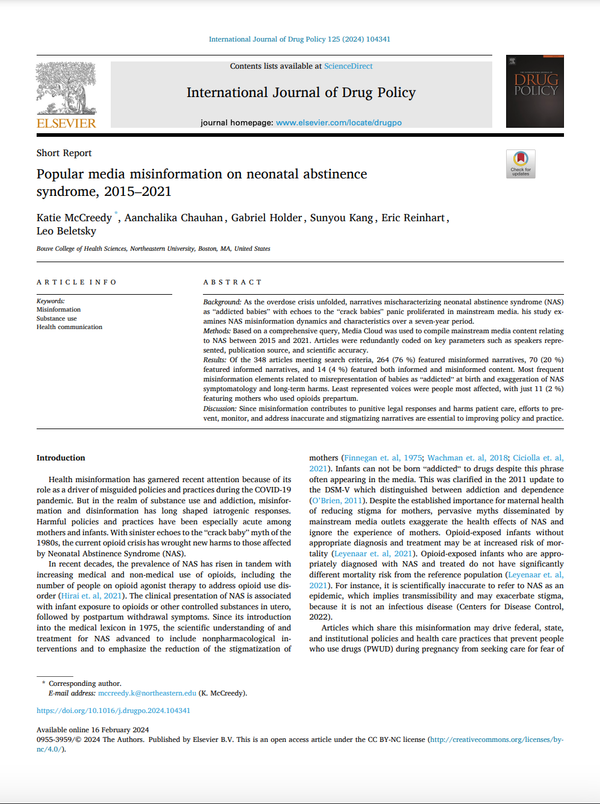Popular media misinformation on neonatal abstinence syndrome, 2015–2021
Background: As the overdose crisis unfolded, narratives mischaracterizing neonatal abstinence syndrome (NAS) as “addicted babies” with echoes to the “crack babies” panic proliferated in mainstream media. his study examines NAS misinformation dynamics and characteristics over a seven-year period.
Methods: Based on a comprehensive query, Media Cloud was used to compile mainstream media content relating to NAS between 2015 and 2021. Articles were redundantly coded on key parameters such as speakers represented, publication source, and scientific accuracy.
Results: Of the 348 articles meeting search criteria, 264 (76 %) featured misinformed narratives, 70 (20 %) featured informed narratives, and 14 (4 %) featured both informed and misinformed content. Most frequent misinformation elements related to misrepresentation of babies as “addicted” at birth and exaggeration of NAS symptomatology and long-term harms. Least represented voices were people most affected, with just 11 (2 %) featuring mothers who used opioids prepartum.
Discussion: Since misinformation contributes to punitive legal responses and harms patient care, efforts to prevent, monitor, and address inaccurate and stigmatizing narratives are essential to improving policy and practice.
Click here to read the full article
